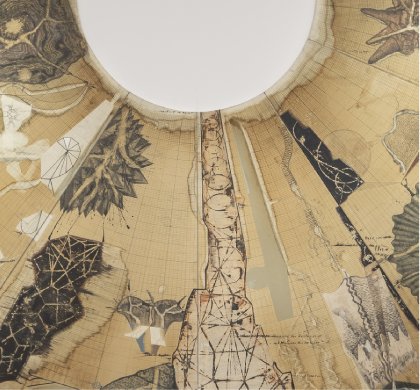
Note 51
To think that Out of Print has released fifty issues and is now publishing the 51st feels momentous. In principle, we will have a new website by our next release, and as we develop this, and think about the work we have platformed and the authors we have featured, and the artists who have honoured us by allowing us to use their work, we feel overwhelmed with a sense of excitement for things achieved and for the future that lies ahead for Out of Print.
This issue features eight works, two in translation. The writers range from a first-time author with an excerpt of a memoir set in the present moment to one of the doyens of Kannada Literature with a story that was written in a previous era.
Neera Kashyap examines a theme that she has invested in with previous stories that have appeared in Out of Print: the mystical impact of faith in healing. In ‘A Visitation’, a doctor examines one of her long-time patients and remarks, ‘Her face looked different. It seemed touched with light that shone from her eyes and moved like rays through the creases on her thin face, lifting her lips in a smile I had never seen before.’
Paromita Goswami also returns to a theme that compels her. She is ‘an activist working on issues of land, labour and forest’. In ‘Three Acres Dry Land’, a story that highlights the injustice of caste and the vulnerability of a widowed woman, Dhurpatabai Nagapure from Jergaon, who has been brutalised by her family, is at the government office discussing what she will do with her inheritance.
In Masti Venkatesh Iyengar’s ‘The Orthodox Non-conformist’, translated from Kannada by Shashikala and Jagannath Sharma, we are in a world where the established religious and caste norms of the time are a reality. In this story, those norms are maintained without undue perturbation at the same time that social mores are broken quite drastically without compromising the dignity of the characters involved.
‘The Parable of Oranges’ by E Santhosh Kumar, translated from Malayalam by Fathima E V plays with perceptions of time. The key character, around whose self-referential thoughts about life and time – as also around bodily idiosyncrasies – the story revolves, is an archaeologist who explains his work: ‘Every inch, every blow, is aimed at removing layers of soil so carefully, so that none of it can hurt the earth.’
The next set of stories have a more specific focus on the internal lives of its main characters.
Bhumika Anand’s protagonist is attempting to regain a sense of self and identity, having lost a lover, Adi, to Covid. She travels, and when she finds she craves ‘the salty barrenness of the sea without him’, she gets on Bumble and meets Sharan. He is not Adi. Can she overcome Sharan’s failings and feel empowered by her choices? Written with an explicit directness, we follow her through a sexual encounter in ‘Reclamation‘, as she attempts to come to terms with her loss.
Archana Nair’s ‘Small Small Things’, the story of a meaningless marriage, is set in a Kerala from where many young men go to work in the ‘Gulf’. A young woman who lives with her husband’s parents in Kerala reckons, ‘In our four-year-long marriage, I have spent a total of 120 days with him, of which I am going to deduct the nights he watches porn with Anil and Sunil, so that’s 98 days then.’ We follow the acts of rebellion through which she finds fulfilment
‘A Tomb for a Tadpole’ by Manjula Narayan takes us through Amrita’s miscarriage and the complexity of emotions that wash over her as she deals with it. Nikhil, her husband does not want another child. He cannot afford it, he tells her. She is assailed with the feeling she did not fight hard enough for the baby. And then, when it is finally over, how will she deal with returning to life?
Nilarghya’s piece, ‘Anhedonia – A Diary’ might be read as a piece of memoir, as the pages of a diary or as a self-reflective narrative. His ruminations open with ‘Happiness is simple yet so fleeting. I can’t hold on to happiness.’ You feel his youth, his angst, the depth of his pain and both his certainty that he wishes to be a writer and his uncertainty about what he writes as he says, ‘I am a mustard seed tossed in the winds of fate.’
The art on the cover of Out of Print 51 is by Jitish Kallat.
